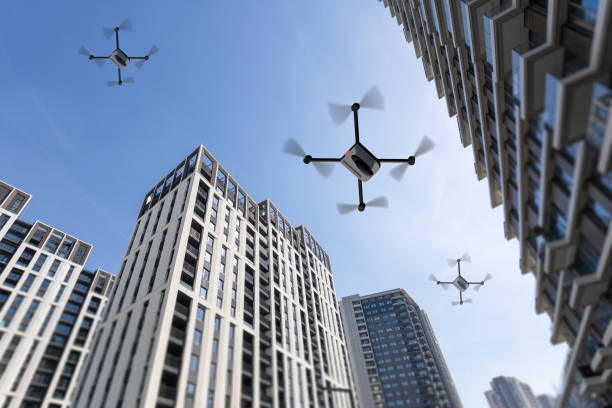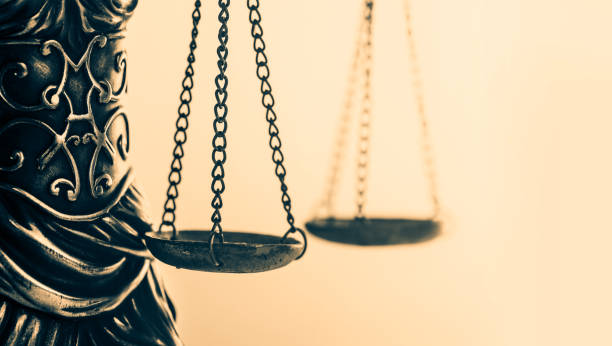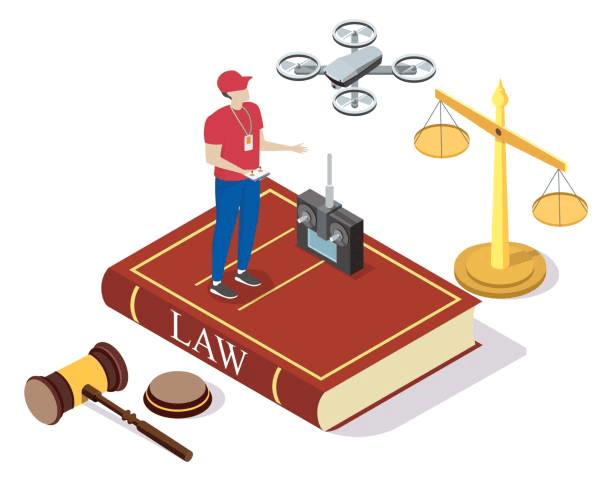Are you curious about drone rules in Australia? If yes, then this article is for you. Drones have become increasingly popular in recent years, captivating hobbyists and professionals alike with their ability to capture stunning aerial footage and revolutionise various industries.
However, as with any emerging technology, there are rules and regulations in place to ensure their safe and responsible use.
In Australia, the Civil Aviation Safety Authority (CASA) oversees the drone industry. The Civil Aviation Safety Authority establishes guidelines to protect both the airspace and people on the ground. In this article, we will explore the drone rules in Australia. This includes shedding light on the regulations, restrictions, and key considerations that drone operators need to be aware of.
The Basics of Australian Drone Laws
Before we delve into the specific rules, let’s start with the fundamentals. In Australia, a drone is officially known as a remotely piloted aircraft (RPA). To operate an RPA, you must understand the different categories defined by CASA:
- Recreational Drones: These are typically flown for fun or leisure purposes. Recreational drone pilots have fewer restrictions compared to commercial operators. However, recreational drone operators still need to follow specific guidelines.
- Commercial Drones: Commercial operators use drones for professional purposes, such as aerial photography, surveying, or delivery services. Commercial drone operations require a licence or certification from CASA.
Drone Rules in Australia: Drone Registration
It is essential to register your drone if you fly it for business or use it as part of your job. If you operate drones for business or as part of your job, it is now mandatory to register them. However, there are certain circumstances where registration is not required. These include:
- If you don’t intend to fly your drone.
- If you’re flying solely for sport or recreation, including model aircraft flown at CASA-approved model airfields.
- If you’re a commercial drone repairer or manufacturer, it is important to keep records.
Registering your drone is a quick and easy process that can be completed online. Each registration remains valid for 12 months. According to drone rules in Australia, you must register your drone before flying it if you use it for:
- Business purposes.
- Job-related activities.
This requirement applies to all drones used to provide any type of service, regardless of their weight. Examples of such activities include:
- Selling photos or videos captured by a drone.
- Inspecting industrial equipment, construction sites, or infrastructure.
- Engaging in monitoring, surveillance, or security services.
- Conducting research and development.
- Performing any drone-related tasks on behalf of your employer or business.
You must be at least 16 years old in order to register a drone. Additionally, to use drones for business purposes or as part of a job, you need to obtain an RPA operator accreditation first. However, this accreditation is not needed anymore if you already possess a remote pilot licence (RePL).

Drone Rules in Australia: Registration Levy
For certain drones used in business or job-related activities, a registration levy may apply. Here are the details based on drone weight:
- Drones weighing 500g or less: Registration is free.
- Drones weighing more than 500g: A registration levy of $40 per drone is applicable.
Please note that registration is mandatory. In exceptional cases, you may be eligible to request a refund of the remotely piloted aircraft (RPA) registration levy. To register your drone, you can easily complete the process using myCASA, an online platform provided by CASA. It takes just a few minutes to register your drone and obtain the necessary certification.
CASA’s Drone Rules
Here are CASA’s drone rules in Australia. They also have a Youtube video related to drone use and safety rules.
- Altitude Limit: Your drone should not exceed a height of 120 metres (400 feet) above the ground.
- Maintain Distance from People: Ensure that your drone stays at least 30 metres away from any individuals.
- One Drone at a Time: Fly only one drone at a time to avoid any potential conflicts or accidents.
- Visual Line-of-Sight: Always keep your drone within your visual line-of-sight. This means you should be able to see the drone with your own eyes, without relying on devices, screens, or goggles.
- Avoid Populous Areas: Do not fly your drone over or above people or in crowded areas. This includes locations such as beaches, parks, events, and sports fields during games.
- Respect Privacy: Be mindful of personal privacy and do not record or photograph individuals without their consent, as it may violate privacy laws.
- Distance from Aerodromes: If your drone weighs more than 250 grams, maintain a minimum distance of 5.5 kilometres from a controlled airport, typically identified by a control tower. You can use a drone safety app to determine the permissible flying zones.
- Prevent Hazards: Ensure that your drone operation does not pose any risks to other aircraft, individuals, or property. Fly responsibly and safely.
Additional Rules to Follow
- Daytime Flying Only: According to CASA’s drone rules in Australia, drone operations are restricted to daylight hours. Avoid flying during the night or in conditions with low visibility, such as fog or cloud cover.
- Emergency Zones: Do not fly your drone over or near areas where public safety or emergency operations are taking place. This includes situations like car accidents, police operations or activities, fires, firefighting operations, or search and rescue efforts.
- Manoeuvre Near Aerodromes: If you are in the vicinity of a helicopter landing site or a smaller aerodrome without a control tower, you can fly your drone within 5.5 kilometres. However, if you notice manned aircraft nearby, safely redirect your drone and land it as quickly as possible.
- Commercial Drone Operations: If you plan to use your drone for work or commercial purposes, additional rules apply. You must register your drone, obtain a remote pilot license or accreditation, and comply with the relevant regulations.

Importance of Seeking Legal Advice
Lawyers can play a crucial role in helping individuals and businesses navigate the drone rules in Australia. Given the complex and ever-evolving nature of aviation regulations, seeking legal advice can provide valuable guidance and ensure compliance with the law. Here’s how we at JB Solicitors can assist:
- Interpreting and explaining regulations: Drone rules and regulations can be intricate, involving various legal provisions and technical requirements. Lawyers specialising in aviation law can help interpret the rules, especially with difficult-to-understand laws and regulations.
- Assessing compliance: Lawyers can review your drone operations and assess whether you are compliant with the relevant regulations. They can analyse your business or individual activities, identify any potential legal issues, and provide recommendations to ensure adherence to the rules.
- Registering drones: Lawyers can guide you through the drone registration process, ensuring that you provide accurate information and meet all necessary requirements. They can also assist in handling any complications or issues that may arise during the registration process.
- Obtaining licences and accreditations: If you intend to operate drones for commercial purposes, lawyers can assist in obtaining the required licences or accreditations from CASA. They can help prepare the necessary documentation, navigate the application process, and ensure compliance with the specific requirements for commercial drone operations.
Contact us today if you need help with drone rules in Australia.
